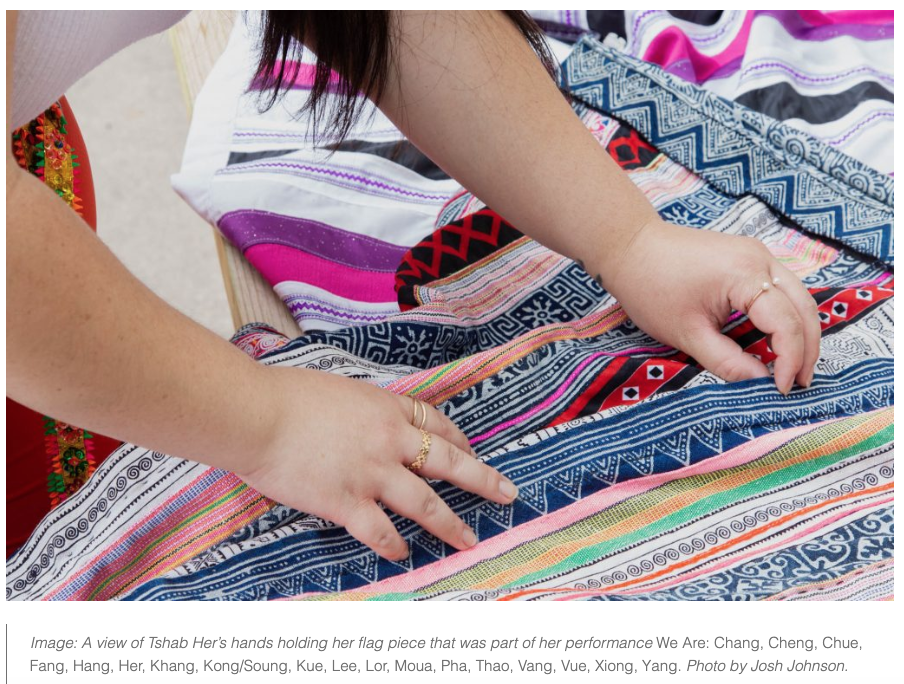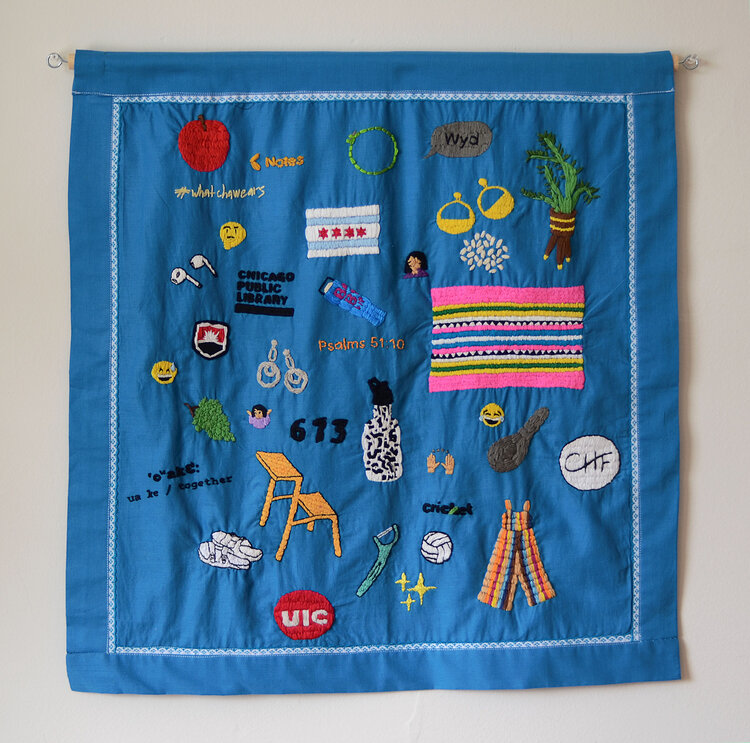“The United States has forgotten about the Hmong people and what they did. We helped the Americans. We died for the Americans–and we still are, long after the war has ended. And isn’t it ironic that most Americans don’t even know who we are.”
-General Vang Pao, 1979
Through her lived experience as a second-generation Hmong-American woman, her artistic endeavors both illuminate and complicate the intricate politics of displacement. As a member of a nation-less ethnic minority originating from Southeast Asia, she grapples with the looming threat of cultural erasure. Her creative output serves as a testament to the dispersed nature of the Hmong community, probing the significance of location and the spaces in between. Employing a diverse array of mediums including embroidery, installation art, and social engagement, she navigates the realms of political and cultural discourse.

In her artistic practice, she harnesses the power of color as a communicative tool, sparking conversations about spatial dynamics, ownership, and the assertion of identity. By integrating traditional Hmong textiles, language, and strategic placement of materials, she delves into the nuanced question of belonging, whether it pertains to physical land or the autonomy of the body. Her work becomes an integral part of the ongoing dialogue surrounding the historical trajectory of political refugeeism in the United States.

Photo: Tshab Her
Art serves as her chosen platform to explore the intricate interplay between visibility and invisibility within the context of the Hmong diaspora. Through her creative process, she not only situates her own body but also those of others within this complex narrative landscape, seeking to uncover the generative spaces that exist within the margins of societal consciousness.
Heritage Vocabulary:
- 流亡 (Liúwáng) – Displacement
- 文化 (Wénhuà) – Culture
- 跨文化 (Kuà wénhuà) – Cross-cultural
- 彩色 (Cǎisè) – Color
- 藝術 (Yìshù) – Art
